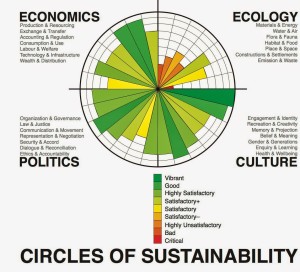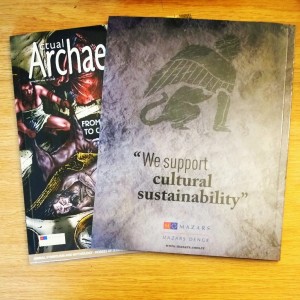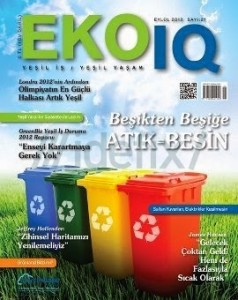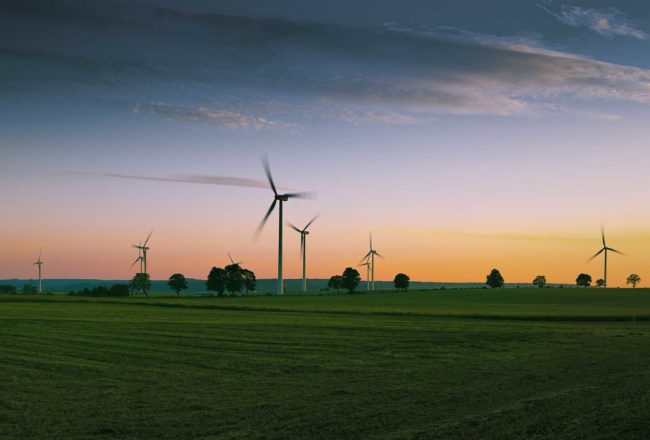“The Sustainable Entrepreneur generally focuses on the root sustainable added value rather thanhow the economic return is yielded. Accordingly sustainable entrepreneurship encompasses a wide range of entrepreneurship types from non-profit social entrepreneurship that aims to create social transformation to ones that develop sustainable business practices.”
Dr. İzel Levi COŞKUN, icoskun@mazarsdenge.com.tr
Imagine a business that acts with an awareness of carrying out its duties in line with sustainable development principles. This business also pursues the shared interests of the whole system in addition to its own interests in the industry in which it operates. It knows what “stakeholder” means and also that a business belongs not to the board of directors and shareholders but to all stakeholders involved, notably the employees, supply-chain and the society. This awareness can be felt in all the decisions made by this business. It even views its competitors and future generations as stakeholders and works to create long-term added value with every step it takes. It establishes a balance between economic return, environment and social impact, giving priority to saving based on the assumption that any investment may have both negative and positive environmental, social and/or economic impact. It makes environmental and social impact measurable rather than viewing them as external economic components. It creates an infrastructure for all input and output which is in line with its sustainability goals and which is accountable to its stakeholders. In addition to accountability this business puts into effect uncompromisingly the principles of transparency, fair governance and responsibility as required by corporate management. It fiercely advocates principles such as ethics, honesty, “human first” and environmental respect not as tools for marketing or gaining favour but as values it genuinely believes in. This business refuses to put money over these principles regardless of the circumstances. It makes sustainability a part of its mission, integrating it with all its business operations and corporate management.

I have a question for you at this point: how many companies do you know of that acts in line with these principles? One? Three? Fifty? A hundred? More? And how often do we, consumers, think of these principles when we are satisfying our consumer habits?
To what extent do you think a giant corporation which has been following a completely different path for years can adapt to a corporate sustainability approach?
All on one airplane, which all mistakenly believe is a treasure
The film The Corporation (The Corporation,
http:// www.surdurulebiliryasam.tv/film/sirket) had a scene about airplanes which had a big effect on me. Ray Anderson, CEO of Interface, uses a metaphor and tells that the early attempts to fly did not follow the laws of aerodynamics in terms of flight equipment, which meant that it was impossible to know how long the craft would stay in the air. He says:
“The man going off of a very high cliff in his airplane, with the wings flapping, and the guys flapping the wings and the wind is in his face, and this poor fool thinks he’s flying, but, in fact, he’s in free fall, and he just doesn’t know it yet because the ground is so far away, but, of course, the craft is doomed to crash.” Based on the false assumption that the earth lets us live on an endless treasure of resources we continue to consume excessively. This means that we are heading towards an environmental catastrophe which causes global climate change while we mistakenly believe that we benefit from the goods or services we purchase as a result of vicious competition that is only measured in terms of money, when all we are doing is to make others and the environment pay the price. Most of us are not aware that within the cycle of sustainability such unjust price will eventually hurt us as well, just like the above metaphor suggests: the craft, which we think of as a treasure, is in free fall and is doomed to crash…
I daresay our only option is to start by accepting that the status quo caused by such mistaken assumptions poses a threat to all beings on earth.

“Sustainable entrepreneurs seek to transform social and environmental problems into business opportunities to benefit and create added value to the environment and society. However such a process should take into account not only the interests of the entrepreneur but also that of the whole system.”
This indeed is where the notion of “Sustainable Entrepreneurship” comes into the picture as an answer to the despair caused by such a threat. One of my favourite definitions of entrepreneurship is as follows: “The entrepreneur is someone who sees the difference between opportunities and threats and can turn both into opportunities.” The sustainable entrepreneurship on the other hand starts off on the assumption that social, environmental and economic impact should co-exist in equilibrium. The Sustainable Entrepreneur generally focuses on the root sustainable added value rather than how the economic return is yielded. Accordingly sustainable entrepreneurship encompasses a wide array of entrepreneurship types from non-profit social entrepreneurship that aims to create social transformation to ones that develop sustainable business practices. In short, sustainable entrepreneurs seek to transform social and environmental problems into business opportunities to benefit and create added value to the environment and society. The key here is that such a process should take into account not only the interests of the entrepreneur but also that of the whole system.
Ananias, Yunus, Moser, Kutluca and Others…
There are many Turkish and international examples of sustainable entrepreneurship that have led to transformation and managed to create social and environmental benefits…
Buğday Association, founded by dear Victor Ananias to create ecological awareness and encourage nature-friendly life is a perfect example of sustainable entrepreneurship. The Association became the pioneer of such great transformation in our lives with a broad spectrum of initiatives which ranges from contributing to the making of the organic agriculture law to setting up organic markets.
The “microcredit,” which was introduced to the world by Muhammad Yunus, is being used in many countries for various projects. Do we know how many million women in Bangladesh only were able to access work through this lending project? Would it be possible to say that the creation of the crowdfunding system was inspired by the microcredit? Support from all over the world via websites such as http://www.gofundme. com/, https://www.kickstarter. com/, https://www.causes.com/, or http://www.firstgiving.com/ changes the lives of many people, allowing a large number of projects to be implemented. Is not change.org proof that we can create collective impact with the people who think alike when it comes to the things that we believe are done incorrectly?
Do we know how many lives are being illuminated in Brazil or in the Philippines by the plastic bottles half-filled by water, invented by Alfredo Moser in Brazil in 2002, to provide light illuminate his workplace, or by the “Liter of Light” project carried out by My Shelter Foundation?
 The Archaeology Magazine, which was first published 7 years ago by a handful of entrepreneur archaeologists, organises archaeological – cultural excursions, makes efforts to create an awareness of archaeology in students, offers an online shopping site called “The Archaeology Shop” and prints English issues for distribution abroad.
The Archaeology Magazine, which was first published 7 years ago by a handful of entrepreneur archaeologists, organises archaeological – cultural excursions, makes efforts to create an awareness of archaeology in students, offers an online shopping site called “The Archaeology Shop” and prints English issues for distribution abroad.

What kind of a role, in your opinion, does this magazine play in the protection of the cultural and historical heritage of Turkey?
Does not the EKOIQ Magazine assume a similar role in the field of sustainability?
Do you know how many students are given equal opportunity every year by the non-profit organisation Khan Academy, founded in 2006 by the entrepreneur Salman Khan with the motto “A free, world-class education for anyone, anywhere”? Does not Khan Academy push the limits of education with the opportunities it offers in fields that range from mathematics to economics, from art history to languages (including Turkish)?
Three other examples of sustainable entrepreneurship that has the potential to be changemakers are B-Fit, Agricultural Marketing and Biopipe. B-Fit was founded by Bedriye Hülya to allow women to exercise and socialise and has so far reached 250,000 women in 8 years. Agricultural Marketing was founded by Tülin Akın and provides a database and a unique information network for and among farmers. The third initiative, Biopipe, which was founded by Enes Kutluca, offers mud and smell-free water treatment systems which can easily be installed in the home…
I believe that a larger number of sustainable entrepreneurship projects will and should be implemented today, at a time when concepts such as renewable energy, green supply- chain, clean production, industrial symbiosis, sharing economy, sustainability reports, integrated reporting and carbon, water and energy management are being increasingly discussed. Although educational institutions, foundations, associations, private companies, public bodies and many other stakeholders are coming together to create an entrepreneurship ecosystem due to the trust and belief in the added value that entrepreneurship created in the economy, I cannot say that the same approach is being adopted when it comes to sustainability, despite the strong need to do so.
From Productivity –Led Economy to Innovation- Led Economy
“It will take some time to understand the difference between continuity and sustainability and between sustainable growth and sustainable development, just like it took some time to see the difference between being enterprising and entrepreneurship.”

Talking specifically for Turkey with the recognition that the entrepreneurship ecosystem here at least has a sound foundation, we need to know the exact meaning of “sustainability” in order to be able to make this notion a part of this ecosystem. I emphasise this point because I believe it will take some time to understand the difference between continuity and sustainability and between sustainable growth and sustainable development, just like it took some time to see the difference between being enterprising and entrepreneurship.
We must remember at this point that i) education is a must and that ii) starting from a young age, great responsibility rests with us to make sure life exists in the sense that all beings interact with each other and each one is valuable to the ecosystem as stated in the Gaia hypothesis and to correct what has deteriorated. The Global Entrepreneurship Monitor 2013 Report is one of the surveys that show where Turkey stands in terms of entrepreneurship in comparison to other countries. Let’s study this survey from the perspective of sustainability- to what extent are entrepreneurs are attracted to sustainability in Turkey as an economy which is transitioning from a productivity-led to an innovation-led one? What are the investment preferences of financing resources in sustainable entrepreneurs? How many sustainable entrepreneurship projects are at the level of incubation? How many sustainable entrepreneurs have applied for Small and Medium Enterprises Development Organisation (KOSGEB) and Scientific and Technological Research Council of Turkey (TÜBİTAK) funds? Which companies and organisations other than Technology Development of Turkey (TTGV) focus on green initiatives, and can the number of such organisations be increased? Can techno-parks or incubation centres specific to sustainable entrepreneurship be set up? How can universities contribute? Can a practice similar to the Sustainability Index of the Istanbul Stock Exchange be implemented in the Special Entrepreneurship Stock Exchange? Can special clauses be added to the Angel Investment (BKS) system that will promote sustainable entrepreneurship? Many other questions can be asked. However the key here is to create a social perception of sustainability while setting up the ecosystem step by step and targeting to combine it with entrepreneurship. I do not find the results of the June 2014 Accenture survey at all surprising- the survey stated that entrepreneurship would result in the creation of over 10 million new jobs in the G20 countries. On the other hand, I genuinely believe that we will be able to “meet today’s needs without compromising future generations’ capacity to meet their needs” only if we succeed in directing such huge potential towards sustainable entrepreneurship which provides social and environmental transformation, of which I have given a few examples above. My opinion is that entrepreneurship that harbours an awareness of sustainability at the start-up phase and serves this purpose will have a much bigger impact on transformation and will create the acceleration that sustainable development requires more easily compared to any other type of entrepreneurship.
With the hope of leaving behind the consumption and growth driven craft that is doomed to crash, and moving towards the dream of sustainable development that will float like the Solar Impulse…
 The Archaeology Magazine, which was first published 7 years ago by a handful of entrepreneur archaeologists, organises archaeological – cultural excursions, makes efforts to create an awareness of archaeology in students, offers an online shopping site called “The Archaeology Shop” and prints English issues for distribution abroad.
The Archaeology Magazine, which was first published 7 years ago by a handful of entrepreneur archaeologists, organises archaeological – cultural excursions, makes efforts to create an awareness of archaeology in students, offers an online shopping site called “The Archaeology Shop” and prints English issues for distribution abroad. What kind of a role, in your opinion, does this magazine play in the protection of the cultural and historical heritage of Turkey?
What kind of a role, in your opinion, does this magazine play in the protection of the cultural and historical heritage of Turkey?






No Comment